Hills Dental Group

Hills Dental Group in a Nutshell
Hills Dental Group originally established in 1995 and subsequently in April 2017 the dental practice was acquired under the new leadership and management of Dr. Rachana Vyas. Dr. Vyas has been in dental industry for 10+ years and earned her Bachelors of Dental surgery (BDS) from India and a Doctorate in Dentistry Surgery (DDS) with a license#56519 from the Dental Board of California; Dr. Vyas enjoys being around people and is passionate about "Treating patients the way she would like to be treated"; Hills Dental Group specializes in Family Dentistry, Implants, Crowns & Bridges, Extractions, Root Canal, Invisalign, Clear Correct; Our team is committed to preserving your overall wellness, which begins with your mouth, the gateway to your body, mind, heart and spirit. It is our goal to transform your smile and give you confidence in your life.
What our Customers Say About Us
Products / Services
Laser Dentistry
Dental Emergencies
Children's Dentistry
Cosmetic dentistry
Dental Implants
Family Dentistry
Teeth Whitnening
Crowns and Bridges
Veneers
Root Canal Therapy
Extractions
Invisalign
Read our Recent Articles
Post-Pandemic Stress-Related Dental Damage and Treatments

The COVID-19 pandemic brought unprecedented levels of stress, affecting both mental and physical health. One overlooked consequence is the increase in stress-related dental damage.
Preventive Dental Care: Assessing Your Dental Needs Before Year-End
 Preventive dental care is essential for maintaining a healthy smile, preventing potential issues, and avoiding costly treatments down the road. Scheduling a check-up as the year ends can help you address your current dental needs, maximize insurance benefits, and start the new year with confidence in your oral health.
Preventive dental care is essential for maintaining a healthy smile, preventing potential issues, and avoiding costly treatments down the road. Scheduling a check-up as the year ends can help you address your current dental needs, maximize insurance benefits, and start the new year with confidence in your oral health.
10 DENTAL NEW YEAR RESOLUTIONS YOU SHOULD MAKE

If you have been taking good care of your dental health and have been making your regularly scheduled visits to the dentist, you will hopefully have avoided any major dental health issues this year. If you unfortunately have had dental problems, you know that avoiding them in the future is vital in terms of avoiding the pain and discomfort that goes with them.
The Benefits Of Professional Teeth Whitening

We all want white shining teeth and are willing to go the extra mile to get them. The plethora of over-the-counter teeth whitening products now available keeps increasing as the demand for a great smile keeps rising. While home whitening treatments may offer some improvement in the quality of a smile, they will never be able to achieve the kind of results that professional teeth whitening can.
THE SURPRISINGLY LONG HISTORY OF DENTAL FILLINGS
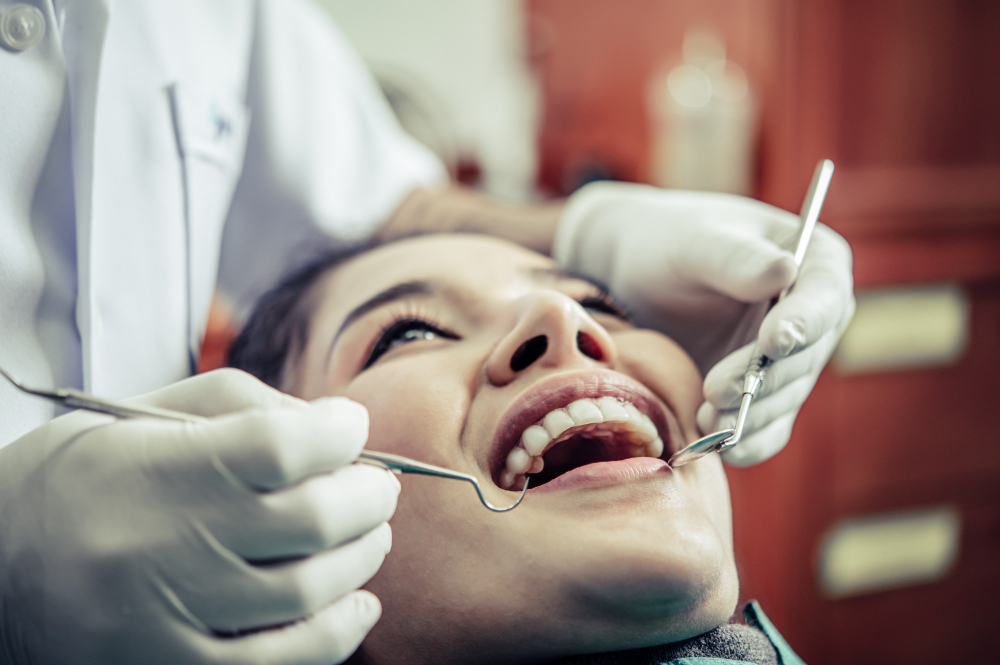
Of all the dental procedures, getting a filling is perhaps the most common. Getting a filling is something to be avoided, but when it is required, the procedure can save you from other dental problems, some of them painful and difficult to deal with. Contrary to what many believe, the practice of using fillings to protect damaged teeth has been around for a very long time.
EVERYTHING YOU NEED TO KNOW ABOUT DENTAL FILLINGS
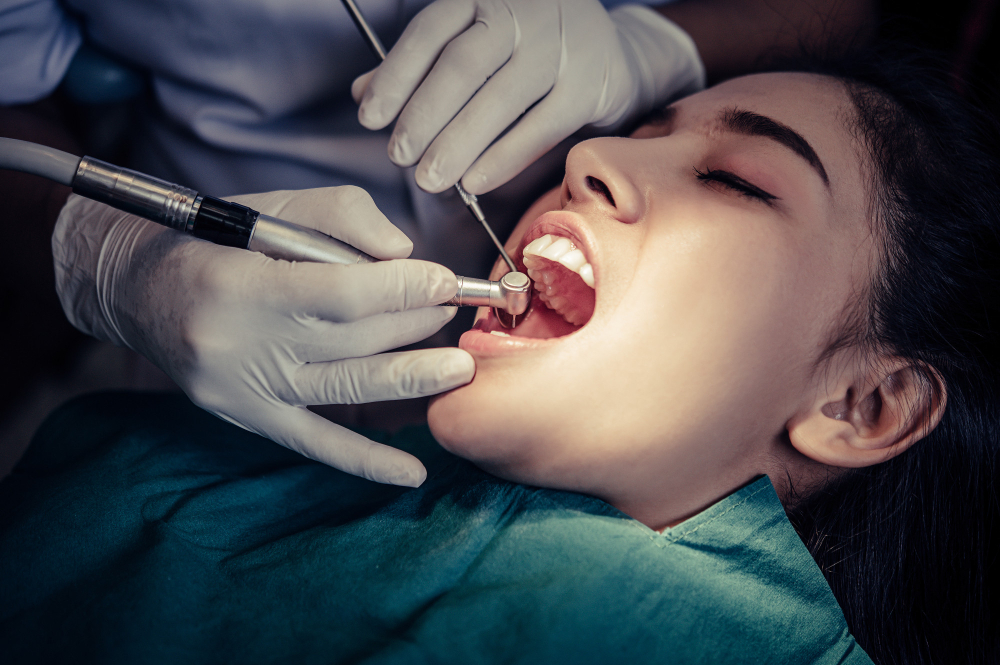 Tooth decay is one of the most common dental problems and getting a filling done is one of the most common dental procedures. When a tooth is damaged by decay, a filling can restore the tooth to its normal state and appearance.
Tooth decay is one of the most common dental problems and getting a filling done is one of the most common dental procedures. When a tooth is damaged by decay, a filling can restore the tooth to its normal state and appearance.
Frequently Asked Questions about our Products / Services
What are the common dental emergencies?
Dental emergencies can be of various types. These include broken teeth, teeth which have been knocked out, injury to the gums, fillings that have come loose, abscesses and so on. Any sudden pain or injury to the mouth could require a trip to an emergency dental clinic. A dentist that offers emergency dental treatment is the best person to treat such situations.
As with any type of medical emergency, the experience of the doctor dealing with the problem is a key factor in providing the best treatment for the comfort and protection of the patients and to ensure that the damage is repaired or the teeth replaced in the right manner. A dentist that offers emergency treatment is the best person to go to.
What are toothaches and dental emergencies?
Any injury in the mouth, from a toothache to a broken tooth, damage to the gums or roof of the mouth, etc. is a dental emergency. The term dental emergencies are used in such cases, as any delay in treatment will increase the patient’s pain and discomfort and would also make the treatment more difficult. As with any medical emergency, the sooner treatment is given, the better. A dental clinic that includes emergency treatment among its services is the best place to go.
How do I pick a good dentist for my family?
We move to California a few years ago and one of the first things we did was to find a dentist to provide complete dental care for our family. After a great deal of searching and asking friends and neighbours, we started going to Hills Dental. Based on our experience, Dr. Rachana Vyas is the best family dentist in San Jose. Spend time to find the best family dentist – the benefits ensure it is more than worthwhile to make the effort.
What do people look for in choosing a dentist?
When choosing a dentist, people look for:
- An experienced and highly reputed dentist who is known for maintaining the highest standards
- A genuine focus on the needs of the patient with testimonials to prove it
- A full-service dental clinic that will cater to all dental treatment needs
- The availability of the best and latest dental equipment
One that does tick all the right boxes is Hills Dental in San Jose CA.
What is considered a dental emergency?
If you have a broken tooth or have damaged your mouth, then a good dental emergency care can give you immediate dental care in their place even though you are not their present patient. During such difficult situations, you can type, emergency dental care near me in Google and find a good one that should be your first place of contact.
What kind of dentist do you see for a broken tooth?
If your tooth is broken, it is essential to get timely treatment from a dentist. If not, your tooth could be damaged more or even become infected. Suppose the overall top of the tooth is broken but the root is not affected, you can even consult an endodontist (who has specialization in root canals) or dentist in San Jose.
What are Common Dental Problems?
The most common dental problem is cavities. This is followed by broken teeth or those that fall out due to injuries. Then there are the other problems like impacted wisdom teeth, misaligned teeth, overbites and so on. The range of dental problems is huge and runs from minor irritants to serious conditions that impact overall health. Having regular checkups at a dentist who knows your dental history will keep your teeth and gums healthy and minimize the risk of dental problems developing.
How can I make my teeth strong?
Keeping your teeth strong will help to avoid dental problems that occur with time. There are 2 key factors to strong and healthy teeth. The first is to maintain good oral hygiene. The second is to go for regular dental checkups so that your teeth can be examined and any potential problems spotted early so that treatment can be started before the condition escalates. The dentist will also be able to give you advice on the best oral hygiene practices that you should follow. A dentist will be able to give you more detailed information on strong teeth.
Do cavities go away after filling?
When a cavity develops, the dentist will clean out the affected area and, if needed, remove any nerve that is causing pain and discomfort. Only then will a filling be inserted. This will fill the cavity and protect the tooth from further damage. So while cavities are filled up during dental treatment, that is not the only function of the filling.
How do you know if root canal is needed
Tooth pain can be caused by a number of problems. Among them are broken, damaged, or decayed teeth. When such problems occur, the nerve in the tooth may be exposed leading to severe pain. A root canal treatment will remove the nerve and repair the tooth so that there is no pain and the tooth look natural. Contrary to myth, today’s root canal procedures are almost painless, so there is no cause for worry.
How do I know if my toothache is serious?
A toothache is serious. There are no 2 ways about it. Teeth are extremely strong and if a tooth becomes painful, it means that it has been damaged in some way. Cavities are a common, but not the only culprit. If even a slight toothache is left untreated, it will grow in intensity until the pain becomes unbearable, requiring emergency treatment. Regular dental checkups will reduce the risk of toothaches developing and if they do occur, a visit to a laser dentist in San Jose like Hills Dental Group.
Does laser treatment damage teeth?
There is a lot of information out there on the internet, and it can be hard to know what is true and what isn't. So let's start with the basics.
Yes, laser treatment can damage teeth. But here's the good news: if you go to a qualified dentist who uses a modern dental laser, the risk of damage is very low. In fact, many dentists believe that laser treatment is actually safer for teeth than traditional treatments like drilling and filling.
That said, it's always important to do your research and ask questions before choosing any kind of dental treatment. And if you have any concerns about the safety of laser treatment, don't hesitate to talk to your dentist.
What is dental laser treatment
Laser dentistry is a dental treatment that uses a concentrated beam of light to remove decay, correct tooth alignment, and achieve other cosmetic results. A dental laser can also be used to disinfect the area around the tooth being treated.
What is the best oral hygiene routine?
A good oral hygiene routine should include brushing your teeth at least twice a day, flossing once a day, and using mouthwash. You should also visit your dentist for regular checkups and cleanings. Dentists can provide more thorough cleaning than you can do at home, and they can also detect and treat any oral health problems early on.
How do I know if my tooth infection is serious?
If you're experiencing pain in your teeth or gums, it's important to visit a dentist to determine the cause. A tooth infection can be serious and potentially lead to other health complications, so it's important to get prompt treatment. While at the dentist, they will likely take x-rays to determine the severity of the infection and whether it has spread. They will also ask about your medical history and symptoms. Treatment for a tooth infection usually involves a round of antibiotics and possibly a root canal procedure. In severe cases, hospitalization may be necessary. If you think you may have a tooth infection, don't hesitate to contact your dentist for an evaluation.
Why Dental Checkups Are So Important?
Dental checkups are important because they can help detect and prevent dental problems.
Dental problems can be painful and can also lead to other health problems. Early detection and treatment of dental problems is the best way to prevent them from becoming worse.
A dental checkup typically includes a thorough cleaning and examination of the teeth and gums. It's also a good time for the dentist to discuss any oral hygiene tips or treatments that may be necessary.
What is the fastest way to get rid of a gum infection?
The fastest way to get rid of a gum infection is to see a dentist. A dentist can give you antibiotics to clear up the infection and also can clean out the infected area. If the infection is left untreated, it could spread and cause further problems.
What is the difference between a cosmetic dentist and a regular dentist?
A cosmetic dentist is a dentist who has special training in the field of cosmetic dentistry. Cosmetic dentistry is the branch of dentistry that focuses on improving the appearance of teeth.
Some of the treatments that a cosmetic dentist may offer include teeth whitening, dental veneers, dental implants, and dental crowns.
A regular dentist is not necessarily trained in the field of cosmetic dentistry but may offer some treatments that are considered to be part of cosmetic dentistry. For example, a regular dentist may offer teeth whitening or dental implants.
How do I choose the best dental office for dental implants in San Jose?
When looking for a dental office for dental implants in San Jose, it's important to consider the qualifications and experience of the dentist and staff. You should also ask about the quality of the implants and whether or not the dentist offers a warranty on them.
It's also important to find out what type of anesthesia is used for the procedure. Some people prefer to have IV sedation or general anesthesia, while others are comfortable with local anesthesia.
Finally, you should ask about the cost of dental implants and compare quotes from several different offices before making a decision.
Is whitening included with Invisalign?
Yes, teeth whitening is included with Invisalign. Invisalign offers both in-office and take-home teeth whitening treatments.
In-office teeth whitening requires just one visit to a dentist's office. The dentist will apply a hydrogen peroxide gel to your teeth and use a laser light to activate the gel. This treatment is designed to brighten your teeth by up to eight shades in about an hour.
Take-home teeth whitening kits are also available from Invisalign. These kits include custom trays and a tube of whitening gel. You can use the trays at home for about 20 minutes per day for two weeks to achieve similar results as the in-office treatment.
What are the best ways to encourage children to maintain good oral hygiene?
Encouraging children to maintain good oral hygiene is essential for their overall health and well-being. A Pediatric Dentist San Jose can offer some tips on how to do this:
Make brushing and flossing fun: Children are more likely to comply with oral hygiene routines if they enjoy the experience. Using toothbrushes with their favorite characters or playing music while brushing can make the process more enjoyable.
Set a good example: Children learn by example. Parents should practice good oral hygiene habits themselves and let their children see them doing so.
Use positive reinforcement: Reward children for good oral hygiene habits, such as brushing and flossing regularly.
Provide oral hygiene education: A pediatric dentist can provide children with information on the importance of oral hygiene and the consequences of neglecting it.
Regular dental check-ups: Regular dental check-ups with a pediatric dentist can help detect and prevent oral health problems early on, keeping the child's teeth and gums healthy.
Overall, by making oral hygiene fun, setting a good example, using positive reinforcement, providing oral hygiene education, and regular check-ups with a pediatric dentist, children can be encouraged to maintain good oral hygiene for life.
What is a pediatric dentist?
A pediatric dentist is a dental professional who specializes in providing dental care for children from infancy through adolescence. They are trained to address the unique dental needs and concerns of children, including monitoring and addressing the development of primary teeth, managing dental anxiety in young patients, and providing age-appropriate education on good oral hygiene habits. A pediatric dentist in San Jose may also offer specialized treatments such as dental sealants, fluoride treatments, and orthodontic evaluations. By focusing on preventive care and early intervention, pediatric dentists help to ensure that children establish healthy dental habits and maintain good oral health for a lifetime.
Why is a pediatric dentist important?
Pediatric Dentists are important for several reasons. Children have unique dental needs that are different from adults, and pediatric dentists are trained to cater to those needs. They provide specialized care and attention to infants, children, and adolescents and have additional training in child psychology, behavior management, and development. Pediatric dentists use specialized equipment and techniques to ensure that dental procedures are comfortable and stress-free for kids. They also prioritize preventive care, which helps kids maintain healthy teeth and gums and avoid dental problems in the future. Choosing a Pediatric Dentist in San Jose ensures that your child receives the best possible dental care that is tailored to their specific needs.
What are some of the latest advancements in pediatric dental care, and how can they benefit children's oral health?
In recent years, there have been several advancements in pediatric dental care that can benefit children's oral health. One such advancement is the use of digital radiography, which allows for lower radiation exposure and faster diagnosis. Another is laser dentistry, which can be used for various procedures, including treating gum disease and cavities, without the need for anesthesia. Dental sealants are another important advancement, which are thin coatings that are applied to the chewing surfaces of molars to prevent cavities.
In addition, pediatric dentists now use sedation techniques that are safer and more effective than in the past, such as nitrous oxide (laughing gas) and oral conscious sedation. These techniques can help ease anxiety and fear in children during dental procedures.
Another advancement in pediatric dental care is the use of minimally invasive dentistry, which involves treating cavities and other dental issues using techniques that preserve as much of the natural tooth structure as possible. This can help reduce the need for more invasive procedures, such as tooth extraction or dental implants, in the future.
Overall, these advancements in pediatric dental care can help children maintain better oral health and prevent dental problems from occurring in the first place.
What services are typically offered by a reputable pediatric dental care clinic?
Here are some of the services that are typically offered by a reputable pediatric dental care clinic: Examinations and cleanings, Fluoride treatments, Sealants, Fillings, Extractions, Orthodontics, Behavioral management, Education and prevention. These services are essential for maintaining good oral health in children and adolescents. A reputable pediatric dental care clinic will have a team of experienced and compassionate dentists and hygienists who are dedicated to providing the best possible care for your child.
Why do children need to have their teeth extracted?
Children may need to have their teeth extracted for various reasons. One common reason is severe tooth decay or dental cavities that cannot be treated with fillings or other dental procedures. Extracting the affected tooth helps prevent the spread of infection and preserves the health of surrounding teeth. Another reason for pediatric tooth extraction is when primary (baby) teeth do not fall out naturally, and permanent teeth are coming in. Extracting the primary teeth allows proper eruption and alignment of the permanent teeth. Additionally, tooth extraction may be necessary if a child's mouth is overcrowded, and there is not enough space for permanent teeth to grow properly. Pediatric tooth extraction is typically performed under local or general anesthesia to ensure the comfort and safety of the child during the procedure.
What should I look for when choosing a pediatric dentist?
When choosing a pediatric dentist for your child, consider the following factors to ensure the best pediatric dental care:
1. Specialization: Look for a dentist who specializes in pediatric dentistry. They have specific training and experience in dealing with children's dental needs and creating a comfortable, child-friendly environment.
2. Qualifications and Credentials: Check the dentist's qualifications, certifications, and memberships in professional organizations related to pediatric dentistry. These indicate their commitment to staying updated with the latest practices and advancements.
3. Reputation and Reviews: Read reviews and seek recommendations from other parents or trusted sources. Look for positive feedback about the dentist's rapport with children, their expertise, and the quality of care provided.
4. Child-Friendly Environment: Visit the dental office beforehand or take a virtual tour to assess if the environment is child-friendly, welcoming, and equipped with age-appropriate amenities, such as toys or games, to help children feel at ease.
5. Communication and Patience: A good pediatric dentist should possess excellent communication skills and the ability to interact effectively with children. They should have patience, understanding, and a gentle approach to ensure a positive dental experience.
6. Preventive Approach: Seek a dentist who emphasizes preventive care, such as regular check-ups, cleanings, and education on oral hygiene practices. Prevention-focused dentistry can help maintain your child's dental health and minimize the need for extensive treatments.
7. Emergency Care Availability: Inquire about the dentist's availability for emergency dental situations. It's important to know if they can provide timely care in case of dental emergencies.
8. Insurance and Payment Options: Check if the dental practice accepts your insurance plan and offers flexible payment options that suit your needs.
By considering these factors, you can select a pediatric dentist who provides the best pediatric dental care, ensuring your child receives optimal oral health support in a comfortable and nurturing environment.
What are the different types of tooth fillings available?
There are several types of tooth fillings available, each with its own set of characteristics and advantages. The most common types of tooth fillings include:
1. Amalgam Fillings: Made from a mixture of metals, including silver, mercury, tin, and copper. They are durable and cost-effective but are silver in color, making them less aesthetically pleasing.
2. Composite Fillings: Also known as tooth-colored or white fillings, they are made of a mixture of resin and glass or quartz filler. They blend well with natural teeth and are a popular choice for visible areas.
3. Ceramic Fillings: Made of porcelain or other ceramics, they are highly resistant to staining and provide excellent aesthetics. They are suitable for large fillings and often require multiple visits to the place.
4. Glass Ionomer Fillings: Contain acrylic and glass materials and release fluoride, which can help prevent further decay. They are more suitable for small fillings, especially in areas with less biting force.
5. Gold Fillings: Made from gold alloy, these fillings are highly durable and long-lasting but are more expensive and less popular due to their distinct appearance.
6. Composite Resin Inlays and Onlays: Custom-made in a dental laboratory, they are used for larger restorations and are an alternative to crowns when the damage is extensive but not severe enough for a crown.
The choice of filling material depends on factors like the size and location of the cavity, cost considerations, aesthetic preferences, and the dentist's recommendation. Your dentist will help you select the most appropriate type of filling for your specific dental needs.
What are dental fillings, and what is their primary purpose in oral health care?
Dental fillings are restorative materials used to repair teeth damaged by decay or minor fractures. Composed of materials like amalgam, composite resin, or porcelain, they are applied to the affected tooth after removing the decayed portion. The primary purpose of dental fillings in oral health care is to restore the tooth's structural integrity, preventing further decay and protecting sensitive nerves. Fillings also help maintain proper bite alignment, prevent discomfort, and ensure optimal dental function. By sealing off vulnerable areas, dental fillings contribute to maintaining a healthy mouth, preserving natural teeth, and preventing the need for more extensive treatments.
Are there different types of dental fillings recommended for specific tooth surfaces or locations in the mouth?
Yes, there are different types of dental fillings recommended for specific tooth surfaces and locations in the mouth. The choice of filling material depends on factors like the location of the tooth, the extent of decay, aesthetic concerns, and the patient's preferences. Here are some common types:
1. Amalgam Fillings: These silver-colored fillings are durable and often used for molars and premolars due to their strength. They are less expensive but more noticeable.
2. Composite Fillings: Made of tooth-colored resin, composite fillings blend in with natural teeth and are commonly used on front teeth or visible areas for cosmetic reasons. They may not be as durable as amalgam.
3. Glass Ionomer Fillings: These are used on non-biting surfaces and release fluoride, which can help prevent further decay. They are often used in pediatric dentistry.
4. Ceramic (Porcelain) Fillings: Resistant to staining and highly aesthetic, these fillings are commonly used in visible areas.
5. Gold Fillings: Gold is durable and biocompatible, making it a suitable choice for posterior teeth.
6. Inlays and Onlays: These are indirect fillings custom-made in a dental laboratory, used for larger cavities and when more tooth structure needs preservation.
Your dentist will consider these factors when recommending the most appropriate filling material for your specific dental needs.
how to whiten your teeth at home?
There are several methods to whiten teeth at home:
1. Whitening Toothpaste: Contains mild abrasives or gentle polishing agents to remove surface stains.
2. Whitening Strips or Trays: Over-the-counter kits with peroxide-based gels or strips that adhere to teeth for a specified time to bleach stains.
3. Baking Soda and Hydrogen Peroxide: A paste made from baking soda and hydrogen peroxide can act as a natural whitening agent when used occasionally.
4. Oil Pulling: Swishing coconut oil in your mouth for a few minutes daily might help reduce bacteria and surface stains.
5. Avoid Staining Foods/Drinks: Limit intake of coffee, tea, wine, and highly pigmented foods to prevent staining.
However, it's essential to consult a dentist on how to whiten your teeth at home before starting any whitening regimen, especially if you have sensitive teeth or underlying dental conditions.
What factors should I consider when choosing the best dentist in San Jose?
Choosing the best dentist in San Jose involves considering several crucial factors:
1. Qualifications and Experience: Look for a dentist with appropriate qualifications, experience, and a solid track record of providing quality care.
2. Services Offered: Ensure the dentist offers the services you require, whether it's general dentistry, cosmetic procedures, orthodontics, or specialized treatments.
3. Reviews and Reputation: Check online reviews, testimonials, and recommendations from patients to gauge the dentist's reputation and quality of care.
4. Technology and Facilities: Consider a dental office equipped with modern technology and comfortable facilities, which often contribute to a more pleasant experience.
5. Location and Hours: Choose a conveniently located dental practice with hours that align with your schedule to make appointments more accessible.
6. Payment Options and Insurance: Check if the dentist accepts your insurance plan or offers flexible payment options that suit your financial situation.
7. Personal Comfort and Communication: A dentist who listens, communicates well, and ensures your comfort during treatments is essential for a positive dental experience.
Consider these factors to find a dentist in San Jose who meets your specific needs and offers high-quality care for your oral health.
What are DIY teeth aligners, and how do they work?
DIY teeth aligners represent a category of orthodontic solutions that are designed to straighten teeth at home without the direct supervision of a qualified orthodontist. These aligners are marketed as a more affordable and convenient alternative to traditional orthodontic treatments, such as braces or professionally monitored clear aligners. The process typically begins with users receiving an impression kit through the mail. This kit includes materials for taking molds of their teeth, a process usually done at home by biting into impression putty to create an impression of the teeth.
Once users have completed their impressions, they mail them back to the DIY aligner provider. The company then uses these molds to manufacture a series of aligners tailored to the individual's dental structure. The aligners are usually made from a clear plastic material and are intended to gradually shift the position of the teeth over time.
The DIY aligner kit typically includes a series of aligners to be worn sequentially, with each set intended to be worn for a specified duration, often around two weeks. As users progress through the series, the teeth are expected to gradually move into the desired alignment. The overall treatment duration may vary depending on the specific misalignment issues being addressed.
However, it's important to note that DIY teeth aligners lack the professional oversight provided by orthodontists in traditional treatment settings. In professional orthodontic care, a qualified orthodontist conducts a comprehensive assessment, considers the patient's overall dental health, and formulates a personalized treatment plan. The treatment progress is regularly monitored, allowing for adjustments and addressing any emerging issues.
While DIY aligners may offer a seemingly cost-effective and convenient solution, the absence of professional supervision raises concerns about their safety and effectiveness. In cases of more complex dental issues or underlying problems, relying solely on a DIY approach may lead to unintended consequences or unsatisfactory results. As such, individuals considering teeth straightening options should consult with a qualified orthodontist to ensure a comprehensive and safe approach tailored to their unique dental needs.
How do DIY teeth aligners compare to traditional orthodontic treatments in terms of effectiveness and safety?
DIY teeth aligners, often marketed as at-home orthodontic treatments, offer convenience and affordability compared to traditional orthodontic treatments. However, they typically lack the professional oversight and supervision provided by orthodontists, which can impact their effectiveness and safety.
In terms of effectiveness, DIY teeth aligners may provide some degree of teeth straightening for individuals with mild alignment issues. However, they are not suitable for more complex cases or cases requiring significant bite correction. Traditional orthodontic treatments, such as braces or professionally supervised clear aligner systems, offer a higher level of customization and control, allowing for more precise tooth movement and comprehensive treatment of various orthodontic issues.
Regarding safety, DIY teeth aligners pose potential risks due to the lack of professional evaluation and monitoring. Improperly fitted aligners or incorrect treatment plans can lead to adverse effects such as tooth damage, gum irritation, bite problems, or even tooth loss. Traditional orthodontic treatments involve thorough assessments, personalized treatment plans, and regular follow-up visits to ensure the safety and effectiveness of the treatment.
In summary, while DIY teeth aligners may seem appealing due to their convenience and cost-effectiveness, they come with inherent risks and limitations compared to traditional orthodontic treatments. Seeking professional guidance from an orthodontist is crucial for ensuring the effectiveness, safety, and long-term success of orthodontic treatment.
How effective are teeth aligners?
Teeth aligners, including professionally prescribed options and DIY Clear Aligners, can be highly effective in straightening teeth and correcting minor to moderate orthodontic issues. These aligners work by applying gentle, consistent pressure to gradually move the teeth into the desired position over time. When used as directed and under the supervision of a qualified orthodontist, aligners can produce significant improvements in dental alignment and bite correction.
However, the effectiveness of DIY Clear Aligners may vary depending on the individual's commitment to wearing them consistently and following the treatment plan accurately. While some individuals may achieve satisfactory results with DIY aligners, others may experience less predictable outcomes or even potential harm if proper oversight and adjustments are lacking. Therefore, it's essential to consult with a dental professional to determine the most suitable orthodontic treatment option and ensure the best possible results while prioritizing oral health and safety.
What are the effects of aging on oral health?
As people age, several changes can affect oral health. These include:
1. Tooth Wear: Years of use can lead to natural wear and tear on teeth, increasing the risk of cavities and tooth loss.
2. Gum Disease: Aging can cause gums to recede, exposing tooth roots and increasing susceptibility to gum disease.
3. Dry Mouth: Medications and certain health conditions prevalent in older adults can lead to reduced saliva production, resulting in dry mouth and increased risk of cavities and gum disease.
4. Oral Cancer: The risk of oral cancer increases with age, emphasizing the importance of regular oral cancer screenings.
5. Tooth Sensitivity: Aging can lead to increased tooth sensitivity, making it uncomfortable to consume hot, cold, or acidic foods and beverages.
Maintaining good oral hygiene, regular dental check-ups, and a healthy lifestyle can mitigate these effects and promote better oral health as individuals age.
How often should individuals visit the dentist for routine check-ups and cleanings?
Individuals should visit the dentist for routine check-ups and cleanings at least twice a year, or every six months. However, the frequency may vary depending on individual oral health needs and any existing dental issues. Some people may require more frequent visits, such as those with a history of gum disease or frequent cavities. Routine dental check-ups allow dentists to detect and address any potential issues early, preventing them from worsening and requiring more extensive treatment. Professional cleanings remove plaque and tartar buildup, which helps prevent gum disease and tooth decay. Additionally, regular dental visits provide an opportunity for oral health education and personalized advice on maintaining good oral hygiene practices at home. Overall, consistent dental check-ups and cleanings are essential for maintaining optimal oral health and preventing dental problems.
What are the best practices for maintaining good oral health?
Maintaining good Oral Health involves several key practices that contribute to a healthy mouth and overall well-being. Firstly, brushing your teeth at least twice a day with fluoride toothpaste helps remove plaque, prevent cavities, and freshen breath. It's important to use a soft-bristled toothbrush and brush all tooth surfaces, including the gums and tongue.
Flossing daily is crucial for cleaning between teeth and along the gum line, where toothbrushes may not reach effectively. This helps prevent gum disease and cavities by removing plaque and food particles.
Regular visits to the dentist for professional cleanings and check-ups are essential. Dentists can detect early signs of dental issues such as cavities, gum disease, or oral cancer, and provide appropriate treatment. They may also offer preventive treatments like fluoride applications or dental sealants.
Maintaining a balanced diet and limiting sugary and acidic foods and beverages can also help protect teeth from decay. Drinking plenty of water, particularly fluoridated water, helps strengthen enamel and wash away food particles.
Lastly, avoiding tobacco products and maintaining overall health habits like staying hydrated and managing stress contribute to good Oral Health and overall well-being.
What are minimally invasive dental procedures?
Minimally invasive dental procedures encompass a range of techniques and treatments designed to achieve dental restoration or improvement with minimal disruption to the patient's natural teeth and surrounding tissues. These procedures leverage advanced technology and precise methodologies to preserve as much of the natural tooth structure as possible while addressing dental issues effectively. Here are some common minimally invasive dental procedures:
Composite Fillings: Used to repair cavities, composite fillings require less removal of healthy tooth structure compared to traditional amalgam fillings. They also blend more naturally with the tooth's color.
Inlays and Onlays: These are custom-made restorations used to repair larger cavities or replace old fillings. They are fabricated outside the mouth and bonded into place, preserving more of the tooth's natural structure than crowns.
Minimally Invasive Gum Treatments: Techniques such as laser therapy or scaling and root planing are used to treat gum disease without extensive surgery, promoting gum health and reducing inflammation.
Orthodontic Treatments: Innovations like clear aligner systems (e.g., Invisalign) allow for teeth straightening with less discomfort and visibility compared to traditional braces.
Minimally Invasive Implant Placement: Using guided surgery techniques and smaller incisions, dental implants can be placed with precision, reducing trauma and promoting faster healing.
These procedures aim to achieve optimal oral health outcomes while minimizing patient discomfort, recovery time, and the need for extensive dental work. They are increasingly preferred for their ability to preserve natural tooth structure and enhance overall dental aesthetics and function.
How do minimally invasive dental procedures differ from traditional dental treatments?
Minimally invasive dental procedures differ from traditional dental treatments in their approach to preserving healthy tooth structure and reducing patient discomfort. While traditional methods often involve extensive drilling and removal of tooth material to address issues like cavities or damage, minimally invasive dental procedures focus on conserving as much of the natural tooth as possible. These modern techniques prioritize early detection and intervention, aiming to address problems before they require more invasive treatments.
For example, minimally invasive procedures may include the use of fluoride treatments and dental sealants to prevent cavities or dental bonding to repair minor damage without extensive drilling. These methods are less traumatic and often involve shorter recovery times compared to traditional treatments. By focusing on prevention and conservation, minimally invasive dental procedures not only enhance patient comfort but also support long-term oral health by preserving the integrity of the natural teeth.
What is a dental specialist, and how is it different from a general dentist?
A Dental specialist in San Jose is a dentist who has undergone additional years of education and training in a specific field of dentistry beyond general dental school. Specializations include areas such as orthodontics, periodontics, endodontics, and oral surgery. These professionals focus on specific dental issues like teeth alignment, gum diseases, root canals, or complex surgeries, using advanced tools and techniques tailored to their expertise.
In contrast, a general dentist provides a broad range of routine dental care, including cleanings, fillings, and preventive services. While general dentists are equipped to handle common dental problems, they refer patients to specialists for more complex cases that require in-depth knowledge and skills.
The key difference lies in the depth of expertise. A Dental specialist in San Jose offers highly specialized care, ensuring that complex or severe dental issues are treated with the highest level of proficiency, often leading to better outcomes for patients with unique dental needs.
Can a smile makeover consultation help with specific dental issues?
Yes, a Smile Makeover Consultation can effectively address specific dental issues by providing a personalized treatment plan tailored to an individual’s needs. During the consultation, a dentist thoroughly examines the patient's oral health and aesthetic concerns, including issues like crooked teeth, discoloration, gaps, worn enamel, or misaligned bites.
The Smile Makeover Consultation allows the dentist to identify underlying dental problems that may affect both appearance and function. For instance, a person with chipped or cracked teeth can benefit from veneers or bonding, while someone with severe discoloration may opt for professional teeth whitening. Misalignment or bite issues can be corrected with orthodontic treatments such as braces or clear aligners.
By focusing on both cosmetic and functional improvements, a smile makeover enhances oral health and helps prevent further complications like tooth decay or gum disease. The consultation offers a comprehensive approach, ensuring that both aesthetic goals and dental health are addressed simultaneously.
What signs indicate that a teen needs orthodontic treatment?
Several signs may indicate a need for Orthodontic Treatments for Teens, helping address potential dental and jaw alignment issues early on. One common sign is overcrowded or misaligned teeth, where teeth may overlap, twist, or have gaps that could lead to oral health complications if left untreated. Difficulty in chewing or biting, often caused by misaligned jaws or teeth, is another indicator. Teens with frequent cheek-biting, tongue-biting, or excessive mouth breathing may also have alignment issues that would benefit from orthodontic care.
Other signs include noticeable overbite, underbite, crossbite, or open bite, where the upper and lower teeth do not align correctly when the mouth is closed. Jaw pain, clicking sounds, or frequent headaches can also signal a need for orthodontic evaluation. Identifying these issues early can prevent complications, making Orthodontic Treatments for Teens an effective way to ensure healthy development, enhance aesthetics, and improve overall oral function.
How do dental payment plans work?
Affordable payment plans for dental care allow patients to access necessary treatments without the burden of paying the full cost upfront. These plans typically break down the total cost of dental procedures into smaller, manageable monthly payments, making oral healthcare more accessible to a broader range of patients.
When you opt for a payment plan, you will usually begin by discussing your treatment needs and financial situation with the dental clinic. Many clinics offer in-house payment plans or collaborate with third-party financing providers that specialize in healthcare loans. These plans may include low or zero-interest options, depending on the terms and your credit eligibility.
The process is straightforward: after your treatment is determined, the total cost is divided into installments spread across several months or even years. This approach ensures patients can prioritize their oral health while staying within their budget. Ask your dental provider about affordable payment plans for dental care today.
What are the benefits of using DIY teeth aligners?
DIY Teeth Aligners offer several benefits, particularly in terms of convenience and cost-effectiveness. One of the main advantages is affordability. Traditional braces often come with significant costs, including consultations, regular adjustments, and extended treatment time. DIY Teeth Aligners, on the other hand, typically cost less, making them an attractive option for those on a budget.
Another benefit is the convenience and flexibility of treatment. With DIY Teeth Aligners, individuals can complete the process from home without frequent visits to an orthodontist. This allows for a more flexible treatment schedule and the comfort of managing the process privately.
Additionally, DIY Teeth Aligners are often more discreet than traditional braces. They are clear, removable, and less noticeable, which can be appealing to those seeking a more subtle approach to teeth alignment. However, it’s important to note that these aligners are generally suitable only for mild to moderate cases of misalignment and may not be effective for more complex dental issues.
How do I choose the right dentist for a smile makeover consultation?
Choosing the right dentist for a Smile Makeover Consultation is essential for achieving the best results. Start by researching dentists who specialize in cosmetic dentistry and have experience with smile makeovers. Look for qualifications, certifications, and memberships in professional dental organizations, as these indicate expertise and commitment to high standards.
Reading patient reviews and testimonials can provide insights into the dentist’s skill, approach, and patient satisfaction. Viewing before-and-after photos of previous smile makeovers can also help assess the quality of their work. During the Smile Makeover Consultation, ask about treatment options, expected results, and the technology they use. A good dentist should explain procedures clearly and offer customized solutions based on your dental needs and goals.
Additionally, consider the clinic’s environment, staff professionalism, and financing options. Choosing a dentist who prioritizes patient comfort and provides a detailed treatment plan ensures a smooth and successful smile transformation.
How can orthodontic treatment benefit a teen's oral health?
Orthodontic Treatments for Teens play a crucial role in improving oral health by addressing alignment issues that can lead to long-term dental problems. Straightening teeth makes brushing and flossing more effective, reducing plaque buildup and lowering the risk of cavities and gum disease. Crooked or crowded teeth often create hard-to-reach areas where bacteria can thrive, leading to potential oral health issues.
Another important benefit of Orthodontic Treatments for Teens is the correction of bite problems, such as overbites, underbites, and crossbites. These issues can cause jaw pain, difficulty chewing, and uneven tooth wear. By properly aligning the teeth and jaws, orthodontic treatment helps prevent these complications, promoting better long-term oral function.
Additionally, properly aligned teeth contribute to healthier gums. When teeth are spaced correctly, the gums fit more securely around them, reducing the chances of gum disease. Early orthodontic intervention ensures a healthier, more confident smile that lasts a lifetime.
Do affordable dental implants look and function like natural teeth?
Yes, affordable dental implants in San Jose can look and function like natural teeth. High-quality materials, such as titanium for the implant and custom-made crowns, are used to ensure a natural appearance and durable function. They restore chewing, speaking, and smiling abilities, providing a permanent solution for missing teeth.
What are dental implants?
Dental implants are artificial tooth roots surgically placed into the jawbone to support replacement teeth or bridges. Made from durable materials like titanium, they fuse with the bone through a process called osseointegration, providing a stable and permanent foundation for artificial teeth. Unlike dentures or bridges, dental implants offer a more natural feel and function, allowing patients to speak, eat, and smile confidently.
The procedure involves several stages, starting with the implantation of the titanium post into the jawbone, followed by a healing period. Once the implant has integrated with the bone, a custom-made crown is placed on top to complete the restoration.
Affordable dental implants in San Jose are an option for those looking for quality tooth replacement without the high cost of traditional implants. Many dental clinics offer financing options, ensuring that patients can enjoy the benefits of a permanent, durable solution for missing teeth at an affordable price.
Our Latest Offers/Specials
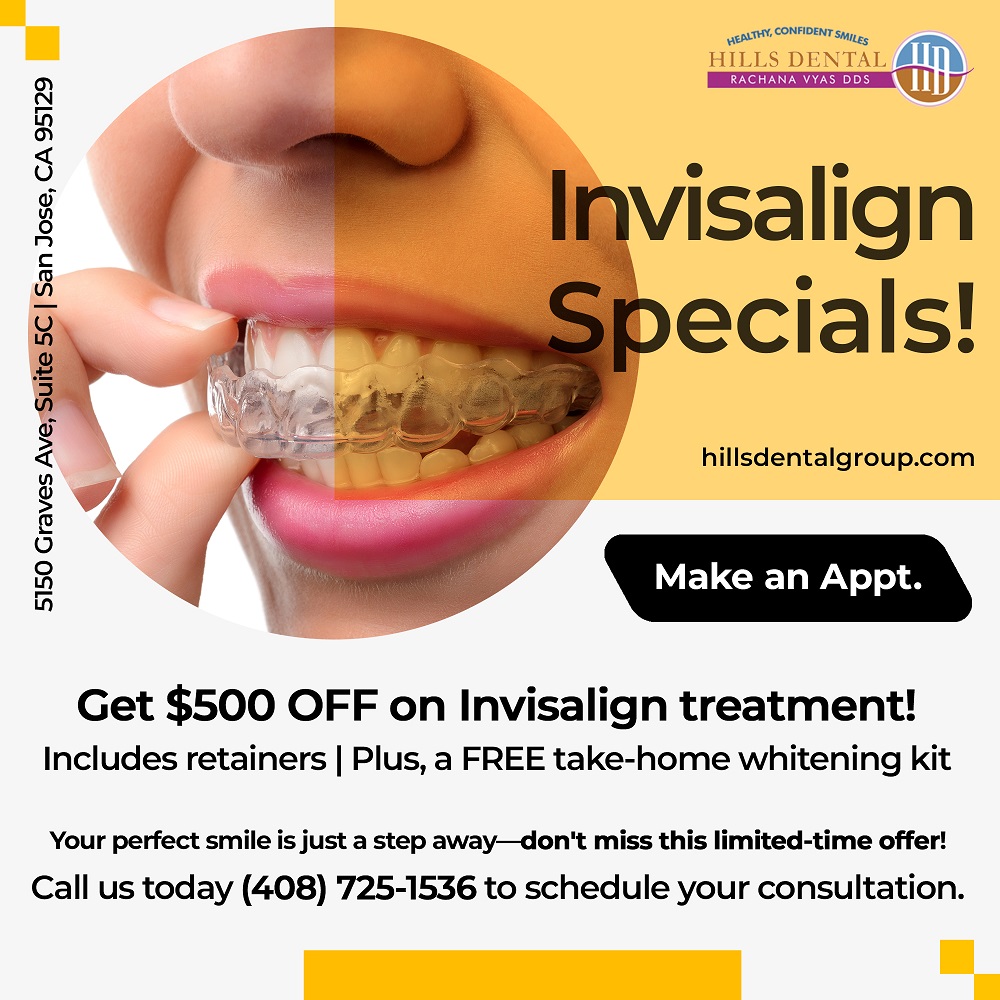
Transform Your Smile! Get $500 OFF on Invisalign treatment!
Transform Your Smile! Get $500 OFF on Invisalign treatment! Includes retainers, plus, a FREE take-home whitening kit. Your perfect smile is just a step away—don't miss this limited-time offer! Call us today (408) 725-1536 to schedule your consultation.

Make the most of your year-end dental insurance benefits!
Don't miss out! It's that time of year again, and your insurance benefits are on the line. Use it or lose it! Make the most of your year-end dental insurance benefits while you still can.

 With 2025 around the corner, there's no better time to focus on your dental health. Prioritize your oral care with resolutions that will keep your teeth and gums in their best condition.
With 2025 around the corner, there's no better time to focus on your dental health. Prioritize your oral care with resolutions that will keep your teeth and gums in their best condition.
 Oral problems are usually one of the first signifiers of a health problem, physical or mental. Did you know that stress affects oral health? Understanding the connection between stress and oral health is crucial in maintaining physical, and mental well-being.
Oral problems are usually one of the first signifiers of a health problem, physical or mental. Did you know that stress affects oral health? Understanding the connection between stress and oral health is crucial in maintaining physical, and mental well-being.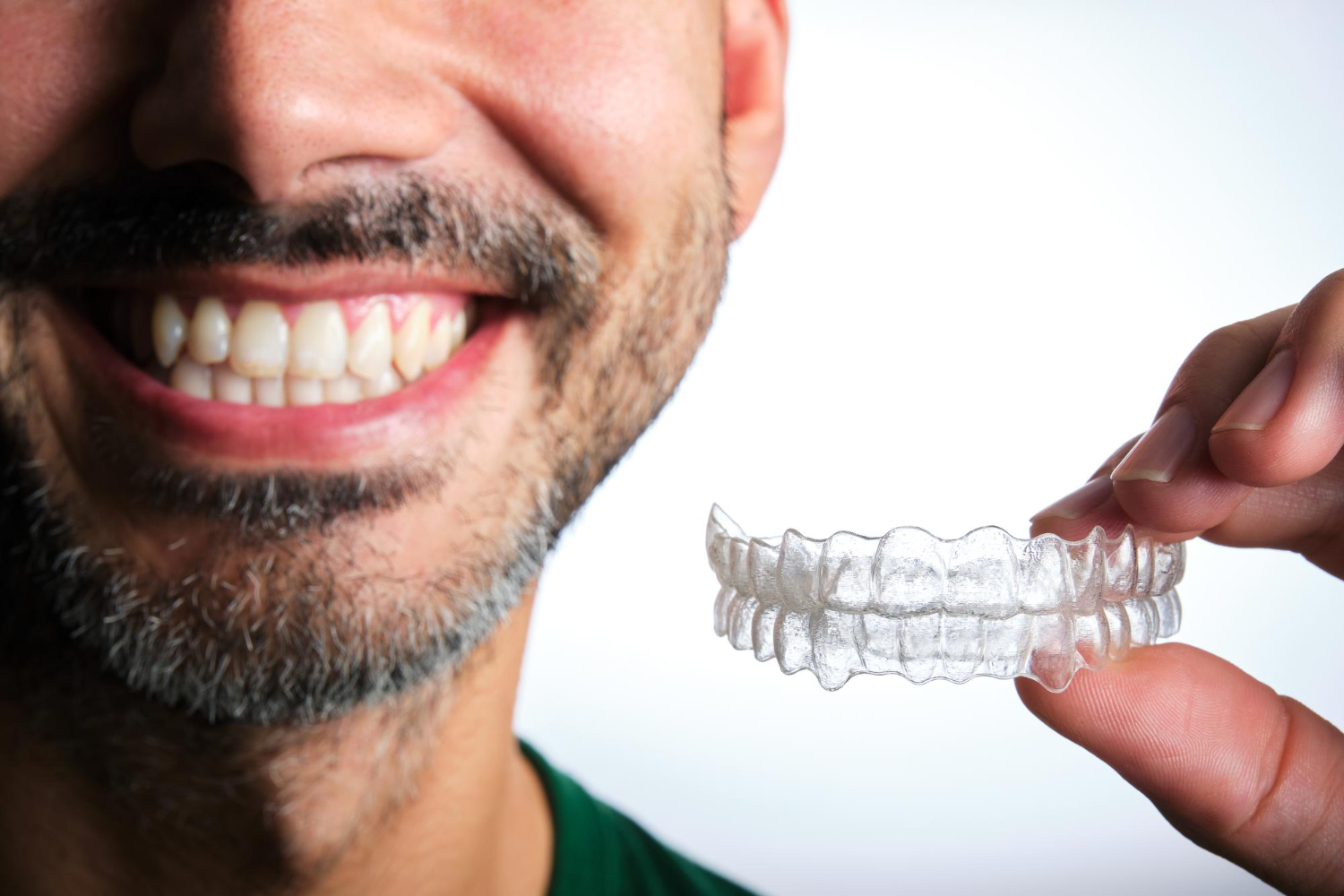
 The pressure for people to always look their best has spawned a continuing boom in beauty aids and appearance enhancers, for both men and women. There is nothing wrong with this, but in some cases, it pays to be aware of the possible negative side effects before starting on anything.
The pressure for people to always look their best has spawned a continuing boom in beauty aids and appearance enhancers, for both men and women. There is nothing wrong with this, but in some cases, it pays to be aware of the possible negative side effects before starting on anything.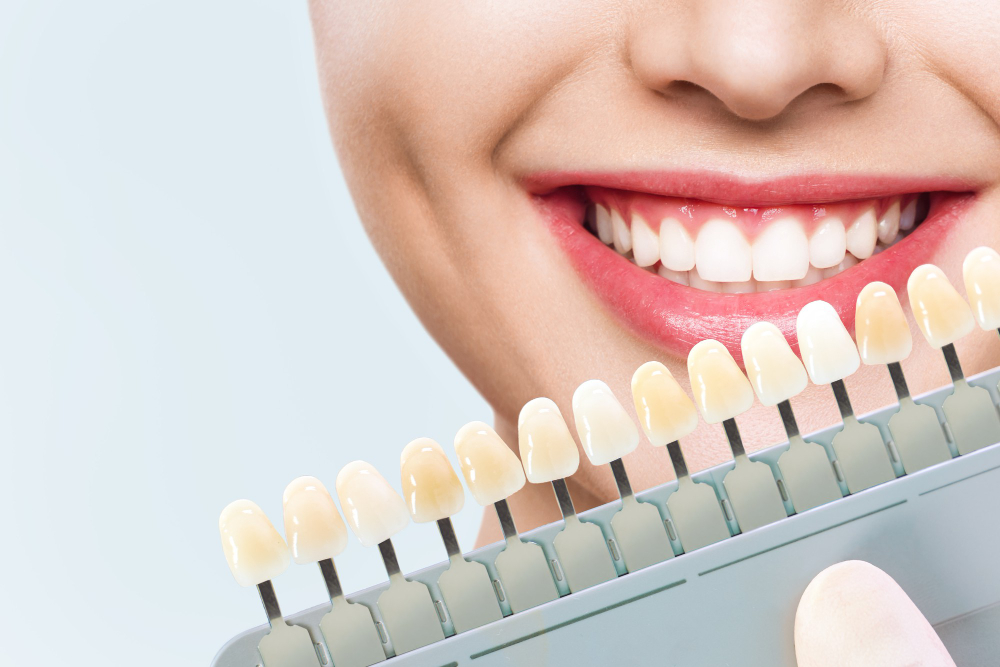

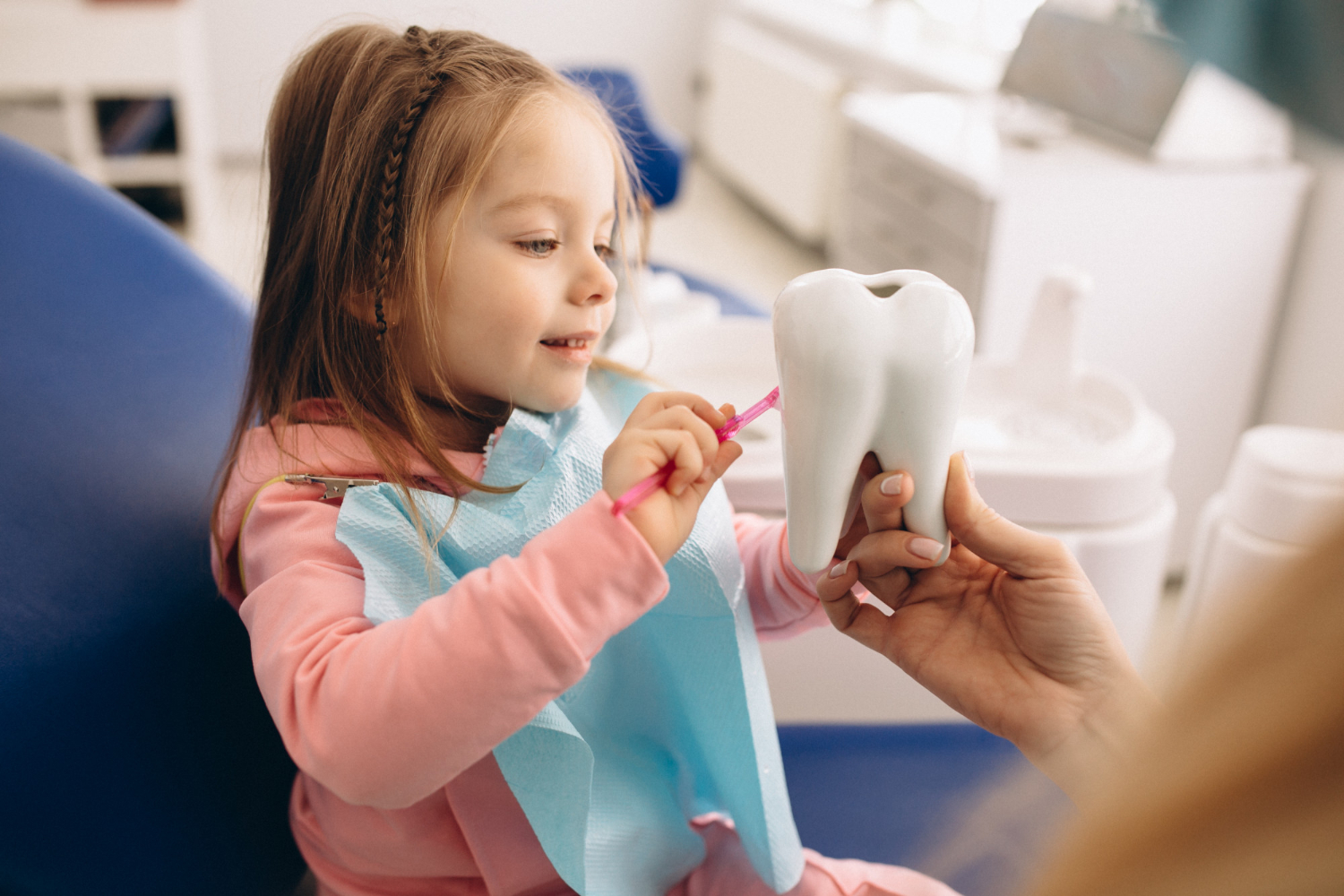 Having a tooth extracted is no fun and it can be especially tough on young children. Unfortunately, sometimes it is the only way to treat an oral health issue.
Having a tooth extracted is no fun and it can be especially tough on young children. Unfortunately, sometimes it is the only way to treat an oral health issue.